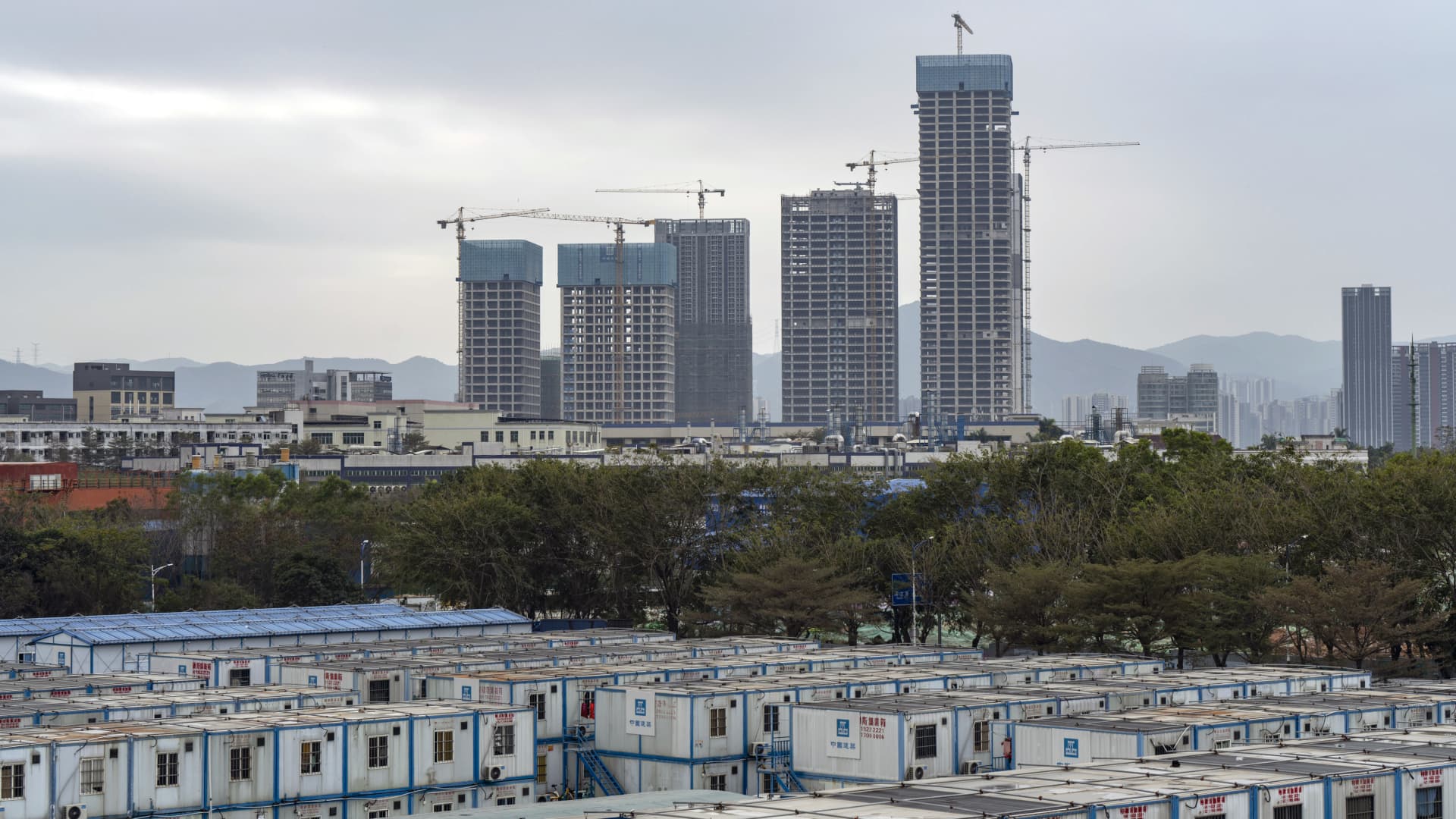China’s Real Estate Development Facing Significant Challenges as Data Reveals Pre-Sold Homes Delays
A recent aerial photo revealed construction of a new property in Hangzhou City, Zhejiang Province, China. This comes as data released by the National Bureau of Statistics showed a 9.3% year-on-year decrease in the national real estate development investment from January to October 2023. The investment in residential housing was also down 8.8 percent. This marks a significant shift in the industry’s landscape amid ongoing challenges.
According to a report by Nomura, the size of unfinished, pre-sold homes in China is about 20 times the size of property developer Country Garden as of the end of 2022. Country Garden, which has been the largest non-state-owned developer in China by sales, encountered financing troubles this year and defaulted on a U.S. dollar bond last month, according to Bloomberg News.
Nomura’s Chief China Economist Ting Lu and a team estimated that there are around 20 million units of unconstructed and delayed pre-sold homes, requiring about 3.2 trillion yuan ($440 billion) to complete. This presents a critical situation for the real estate market in China, where apartments are typically sold ahead of completion.
The delays in delivering pre-sold homes have raised concerns about potential social stability issues, according to the Nomura report. The collapse of the property sector and widespread credit fallout among property developers may lead to increasing impatience among home buyers waiting for delivery of their purchased new homes. This, coupled with the fact that developers have only managed to deliver 48% of the homes pre-sold between 2015 and 2020, poses a significant challenge for the industry.
In response to these challenges, experts anticipate that Beijing may need to significantly ramp up policy support to restore confidence in the property sector and the economy. The delays in construction have further exacerbated the situation, with many homebuyers in China deciding not to pay their mortgages on property purchases due to long delays. This has created a financing crunch for developers, particularly since Beijing’s crackdown in 2020 on their high reliance on debt, and difficulties in construction due to Covid-19 restrictions last year.
Ultimately, the real estate sector in China is facing a critical moment, with the need for substantial policy support to mitigate the challenges posed by pre-sold homes delays and restore confidence in the market. The future of the industry will likely depend on Beijing’s response and the ability of developers to address the backlog of unfinished and delayed housing units.

I have over 10 years of experience in the cryptocurrency industry and I have been on the list of the top authors on LinkedIn for the past 5 years. I have a wealth of knowledge to share with my readers, and my goal is to help them navigate the ever-changing world of cryptocurrencies.











